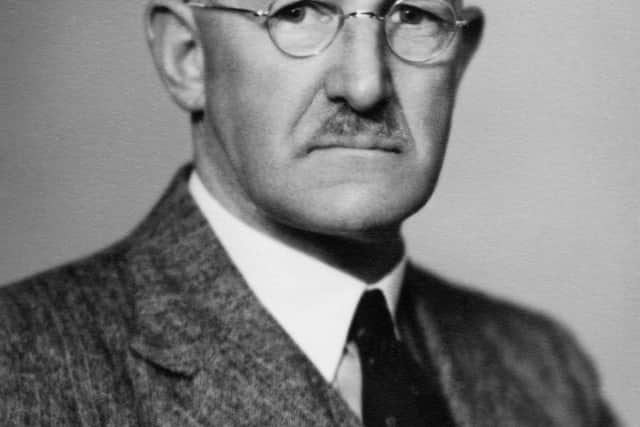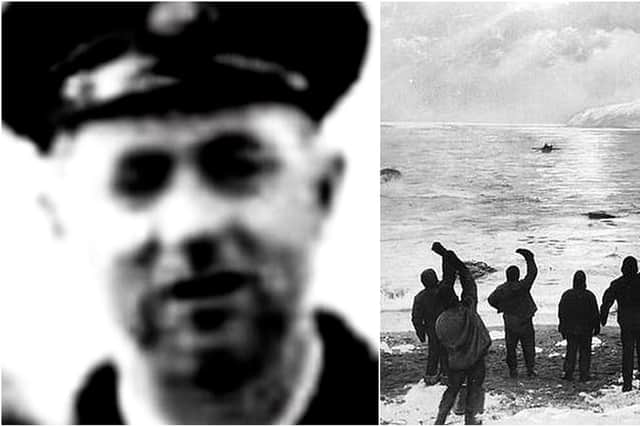Fresh Polar Medal appeal for Scots carpenter denied honour by Ernest Shackleton
Harry ‘Chippy’ McNish was one of four crew members on the stricken 1914 Imperial Trans-Antarctic Expedition to be denied the honour, despite widespread regard for his skills, not least adapting the ship’s small wooden lifeboat ahead of an 800-mile search for help, a trip which ultimately led to the rescue of the crew 10 months after the Endurance was abandoned by explorer Ernest Shackleton.
Both Harry’s great-great nephew and the son of Sandy Macklin, the ship’s surgeon from Aberdeen, who at the time described the missing honour as a “grave injustice”, have refreshed calls for the carpenter to receive the Polar Medal.
Advertisement
Hide AdAdvertisement
Hide AdIt comes as a long-awaited voyage to find the wreck of the Endurance circles the Weddell Sea, where she is known to lie.


John McNish, 59, a painter of Fairlie in North Ayrshire, said: “When you look at the full story of what happened out there, I don’t think they would have survived if it wasn’t for Chippy. They had to make an 800-mile trip in an open boat to get to the whaling station and Chippy modified it to make it safer, so they would make those 800 miles.”
McNish and Shackleton clashed, particularly after the explorer ordered the carpenter’s cat – Mrs Chippy – to be shot after the Endurance was abandoned. There are accounts of Shackleton pulling a pistol on McNish after he criticised the explorer’s plan to drag lifeboats over ice as they searched for help.
Mr McNish said: “The only escape was using the lifeboats and Shackleton later admitted Chippy was right.”


“I don’t think he was the easiest person to get on with but when you see what he did on the expedition, it’s not right he didn’t get the Polar Medal. I think there was also a class thing going on.”
The Ministry of Defence said there was no recorded reason why Harry McNish was denied the honour, although some have suggested Shackleton was influenced by ship’s captain Frank Worsely.
Dick Macklin, 70, of Aberdeen, the son of Endurance surgeon Sandy Macklin, said: “You could put a good argument forward that none of the crew would have survived without Harry McNish. He was the one who made the lifeboat seaworthy.
"But McNish was very outspoken and of course in those days those who answered back to leadership were very much frowned upon.”


Advertisement
Hide AdAdvertisement
Hide AdIn a 1914 letter, Shackleton described McNish as “the only man I am not dead certain of”.
In 1930, McNish died destitute in New Zealand, where he worked with a shipping company. He was buried with full naval honours with the New Zealand Antarctic Society later securing him a headstone. In 2004, a life-size bronze statue of Mrs Chippy was added to the grave.McNish Island, which lies off South Georgia, was also named in his honour.
A Ministry of Defence spokesman said: “The UK Polar Medal Assessment Committee would receive representations, and decide on honours. No reason was given by Shackleton on record as to why a Polar Medal wasn’t granted to Harry McNish specifically.”
A message from the Editor:Thank you for reading this article. We're more reliant on your support than ever as the shift in consumer habits brought about by Coronavirus impacts our advertisers.
If you haven't already, please consider supporting our trusted, fact-checked journalism by taking out a digital subscription.
Comments
Want to join the conversation? Please or to comment on this article.
